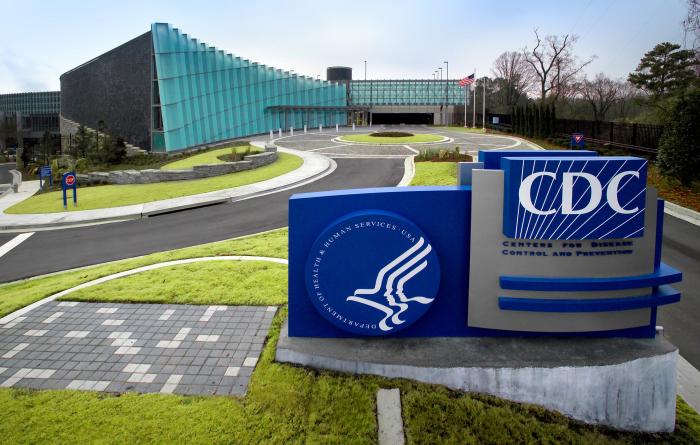President-Elect Joe Biden recently announced that Rochelle Walensky, MD, MPH, chief of the division of infectious diseases, Massachusetts General Hospital, and professor of medicine at Harvard Medical School, will be the next director of the Centers for Disease Control and Prevention (CDC). She will start in the role, replacing Robert Redfield, MD, when the Biden administration takes office next month.
Although we will certainly learn more about Walensky over the next few weeks and months, here are five reasons that helped secure her nomination to the highly important, and undoubtedly challenging, position.
- She is highly educated.
Walensky attended college at Washington University in St. Louis, graduating with a degree in biochemistry and molecular biology. She attended medical school at Johns Hopkins School of Medicine where she also trained in internal medicine. Walensky then moved to the Boston area, where she joined the combined fellowship program in infectious disease at the Massachusetts General Hospital/Brigham and Women’s Hospital. In addition, she earned an MPH in clinical effectiveness from the Harvard School of Public Health.
- She is both a researcher and a physician.
In addition to her clinical role, Walensky is actively engaged in research and is an author on more than 200 scientific publications. Her focus is on HIV testing, care, and prevention strategies to inform policy. Her research uses multiple methods of microsimulation modeling and decision analysis to develop health policy and inform clinical trial design and evaluation. She also works to advance international health policy focusing on the promotion of HIV treatment as prevention (TasP) and the adoption of other strategies of HIV care.

In comments made on Tuesday at the ceremony where President-Elect Biden introduced his healthcare and COVID team—including Walensky—she spoke to her past experience working in HIV and how it will inform the challenge that lies ahead in her role as CDC director. She said:
“The pandemic that brought me here today is one that struck America and the world more than 30 years ago because my medical training happened to coincide with some of the most harrowing years of the HIV/AIDS crisis. As a medical student, I saw firsthand how the virus ravaged bodies and communities. Inside the hospital, I witnessed people lose strength and hope. While outside the hospital, I witnessed those same patients, mostly gay men and members of vulnerable communities, be stigmatized and marginalized by their nation and many of its leaders.
“Now, a new virus is ravaging us. It’s striking hardest, once again, at the most vulnerable, the marginalized, the underserved.
“I’m honored to work with an administration that understands that leading with science is the only way to deliver breakthroughs, to deliver hope, and to bring our nation back to full strength. To the American people and to each and every one of you at the CDC, I promise to work with you, to harness the power of American science, to fight this virus and prevent unnecessary illness and deaths so that we can all get back to our lives.”
In the same ceremony, Biden introduced other nominees including Xavier Becerra as the Health and Human Services secretary, Vivek Murthy, MD, who will be returning to the post of U.S. surgeon general, Marcella Nunez-Smith, MD, COVID-19 equity task force chair, Jeffrey Zients, COVID-19 response coordinator appointee, and announced that Anthony Fauci, MD, would remain in his role as director of the National Institute of Allergy and Infectious Diseases as well as serve as the chief medical adviser for COVID-19.
- Communication is one of her strengths.
Among the multiple criticisms of the CDC over the past few years, the agency’s lack of communication and transparency has led the list. But Walensky, a natural communicator, is likely to make that a thing of the past. She reaches out to the medical and scientific communities by publishing commentaries in medical journals, such as the recent “Viewpoint” she co-authored in JAMA titled, “The Challenges Ahead With Monoclonal Antibodies.” Her reach extends far beyond that, however, as she makes regular appearances on CNN, and is active on social media with over 53,000 followers.
- The “full package.”
On Morning Edition, a talk show airing on Boston’s NPR station, WBUR, a colleague of Walensky’s said that she is the “full package.” Robbie Goldstein, MD, explained that she “is a spectacular scientist, someone who understands science data and evidence better than really anyone I know.” Goldstein added that she is “deeply committed to public health and improving the public health. And she is someone who truly understands the word ‘equity’ — understands how we’re going to get out of this pandemic in an equitable manner. I think, as we have gone through this pandemic over the past now almost 10 months, she has been the North Star of our division certainly here at Mass General. I think she’s been the North Star of our response in Massachusetts, and she will soon have that role for the nation.”
Indeed, the response to the news of Walansky’s nomination has been overwhelmingly positive by her colleagues and peers.

- One role that has prepared her well.
Walensky’s twitter handle says that, in addition to the many professional hats she wears, she is also the “mother of boys”—a role that has likely prepared her well for the tasks that lie ahead.



